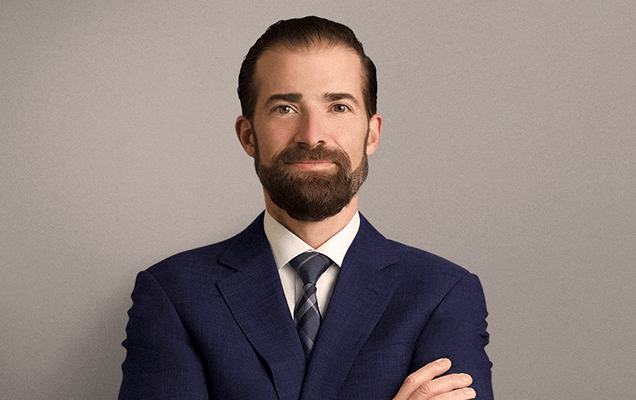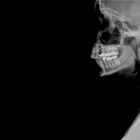Geniculate neuralgia, which is sometimes also referred to as geniculate ganglionitis or nervus intermedius neuralgia, is a very rare nerve pain disorder that can be incapacitating for those who suffer from it. The disorder occurs when the nervus intermedius nerve, located within the skull, is compressed by a nearby blood vessel. Geniculate neuralgia symptoms range from moderately annoying to extraordinarily debilitating. Because of its complicated location and the fact that it’s a rare disease, geniculate neuralgia can be very difficult to treat.
Early Geniculate Neuralgia Symptoms
Geniculate neuralgia symptoms may mimic those experienced due to other disorders, such as trigeminal neuralgia and migraines. It is also possible to suffer from a combination of those disorders concurrently, making diagnosis and treatment even trickier. If you are wondering whether you or a loved one may be suffering from geniculate neuralgia, compare your experience to this list of early symptoms:
- Sharp, stabbing pain inside the ear.
- Electrical currents of pain that last only a few seconds at a time.
- Gradually worsening burning sensations in or around the ear.
- Ear-centric pain when other causes have been eliminated, such as ear infection or ruptured eardrums.
The pain caused by geniculate neuralgia may not be recognized as such initially. Typically, patients will experience geniculate neuralgia symptoms as unremitting pain or as on/off bouts of pain over days or weeks. Because it’s a rare disorder, primary care physicians may not be well-versed in its diagnosis or may begin with referrals to ear, nose and throat specialists. Geniculate neuralgia is a neurological disorder, however, and should be treated by a neurologist.
Triggers of Geniculate Neuralgia Symptoms
For some patients, geniculate neuralgia symptom may occur with no outside stimulus. For many, however, the pain of geniculate neuralgia can be caused by specific triggers. Avoidance of those triggers may lessen or (uncommonly) eliminate this type of pain. Some of the more common avoidable triggers are cold — such as a cool breeze — or extreme levels of noise.
Unfortunately, many triggers of geniculate neuralgia pain are simply unavoidable. Yawning, swallowing or sneezing are some of those common culprits. If an action can cause your ears to pop normally, it may also be the trigger of geniculate neuralgia pain. Touching sensation, in and around your ears, may also trigger pain. Like the early symptoms, these triggers may be difficult to differentiate from other sources of head and ear pain at first. Severity, length of suffering and failure to achieve relief through treatments for more general ear pain may be your (and your doctor’s) first clue to look deeper.
Are you out of options
to eliminate your pain?
Advancing Geniculate Neuralgia Symptoms
As your pain worsens or elongates, you may begin to experience symptoms far more varied than the sensation of inner ear stabbing. This could indicate that the compression of your nervus intermedius has become more pronounced and is now causing signals along that nerve that result in symptoms such as:
- Tinnitus (ringing in your ear).
- Vertigo (sensation of spinning/loss of balance).
- A bad taste in your mouth unexplained by foods eaten or acid reflux.
- Enhanced salivation in the absence of another identifiable cause.
- Pain that spreads to other portions of your head, including the portion of the face typically affected by trigeminal neuralgia.
Treating Geniculate Neuralgia
Both medical and surgical management of geniculate neuralgia is similar to that employed for trigeminal neuralgia. Anti-epileptic agents such as Tegretol and Trileptal are typically the first line of response recommended by neurologists. Primary care physicians may also prescribe pain medications, but those run the risk of addiction while only masking — not solving — the pain of geniculate neuralgia.
Patients may respond more positively to one medication over another, and it can take a great deal of experimentation to reach the optimal dosage that results in pain minimization or elimination. Over time, you may become acclimated to a particular dosage, necessitating titration to a higher amount to achieve the same level of relief.
While medical management is preferred, it may not be the best solution for all patients. Your case of geniculate neuralgia may not respond to medicinal treatment at all. Or, over time, medications may become ineffective. You may also experience undesirable side effects from those medications, particularly at higher doses. Those side effects may include extreme fatigue or drowsiness, dizziness or worsening vertigo, and feeling like your mental faculties are diminished. When those side effects pile on top of your already debilitating geniculate neuralgia symptoms, your neurologist may refer you to a neurosurgeon.
Because geniculate neuralgia is typically caused by impingement upon the nervus intermedius by a blood vessel, microvascular decompression is often the first line of surgical options. During this procedure, your surgeon will use imaging to locate the impingement and then place a surgical sponge between the affected area of nerve and the blood vessel. As signals begin to flow more naturally along this nerve again, you’ll experience great or total relief. Depending on your particular case, you and your surgeon may also identify other procedures that are designed to eliminate or lessen the pain of geniculate neuralgia. These include Gamma Knife Radiosurgery or percutaneous rhizotomy.
If you believe or have been told that you or a loved one is suffering from geniculate neuralgia, the time to seek treatment is now. Avoid experiencing worsening or debilitating pain by partnering with a highly qualified healthcare professional who can start you on your road to recovery.

About Dr. Anthony D'Ambrosio
Dr. Anthony D'Ambrosio is an accomplished neurosurgeon in North Jersey and a proud member of Neurosurgeons of New Jersey practicing primarily out of their Ridgewood office conveniently located on East Ridgewood Avenue. Dr. D’Ambrosio focuses his clinical practice on brain tumors, nervous system disorders, and facial pain disorders. He has expertise in a variety of complex surgical and radiosurgical techniques as well as minimally invasive procedures intended to successfully treat complex diseases of the brain. These techniques include micro-neurosurgery, microvascular decompression surgery and Gamma Knife radiosurgery. He's authored over 25 peer-reviewed journals and is the recipient of many awards.
Recent Posts:






